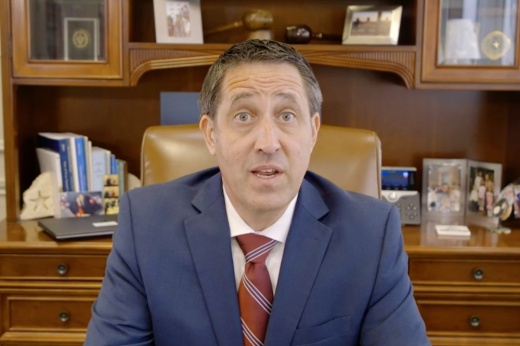Lawmakers will have an unprecedented amount of money to spend as they create the state’s next budget: $188.2 billion. This is largely thanks to high sales tax revenue, spikes in energy prices and overall economic growth in recent years.
This is a 26.3% increase in general revenue funds compared to the previous budget cycle, Texas Comptroller Glenn Hegar said during the presentation of his biennial revenue estimate Jan. 9.
“The enormous amount of projected revenue gives the state a remarkable, a truly once-in-a-lifetime, opportunity for historical actions in this legislative session,” Hegar said.
This includes a $32.7 billion surplus, which Hegar said will be left over from the 2022-23 budget. He said federal coronavirus relief funds also helped lawmakers save money during the 2021 legislative session and prevent expenditures for the upcoming biennium, contributing to the high balance available.
According to a news release, the state saved $3.8 billion due to the use of coronavirus funds. Due to unexpected increases in local property taxes, the state saved an additional $4.3 billion that would typically go to the Foundation School Program, which funds public schools.
Hegar said such high revenue is not anticipated to occur in future bienniums.
“The revenue increases that we've seen have been in many ways unprecedented, and we cannot reasonably expect a repeat,” Hegar said. “We are unlikely to have an opportunity like this again.”
The $188.2 billion in funds exceeds Texas’ spending limits, which are enshrined in both the Texas Constitution and state law. In November, the Legislative Budget Board voted unanimously to establish a 12.33% spending limit for the biennium.
To spend additional money, lawmakers can pass new legislation that increases the spending cap. If at least three-fifths of lawmakers vote that emergency conditions exist, this would also allow them to surpass the cap.
Hegar said he does not expect lawmakers to break the spending limits—instead, money may be left in the state treasury or set aside for future use.
Breaking down the balance
Lawmakers are required to put $10.2 billion into the Economic Stabilization Fund—also known as the Rainy Day Fund—and the State Highway Fund, Hegar said. This money will come from oil and natural gas taxes.
An additional $155 million will be set aside to cover a shortfall in the Texas Tuition Promise Fund, a prepaid college tuition program run by the state.
Sales taxes will make up 53% of general revenue in 2024-25, the release said. Oil production taxes, motor vehicle taxes, housing taxes, franchise taxes and natural gas taxes are also anticipated to be major revenue sources.
The total state revenue is expected to reach $342.3 billion for the upcoming biennium. This includes approximately $108 billion in federal receipts and $68 billion from “other income.” These funds have specific uses and cannot be used for general-purpose spending by the Legislature, according to the comptroller’s office.
Recession risks
Hegar said he expects a “mild recession in Texas,” which will be more “shallow and short” than in some parts of the nation.
But he recognized that Texas residents and businesses will still pay the price. He anticipates decreased spending, increased unemployment and depleted savings.
“The expected downturn ... will not make Texans' lives easier,” Hegar said. “We cannot and will not lose sight of the fact that every tax dollar received by the state is coming out of Texans’ pockets.”
If inflation remains high, Hegar said the Federal Reserve will likely increase interest rates to control it, deepening the recession. Unstable oil and gas prices could also impact how much money is available to lawmakers, especially if conditions change in China and Russia.
Spending during the session
Hegar recommended lawmakers use the unprecedented funds to strengthen Texas’ power grid; increase access to broadband; improve port and water infrastructure; increase salaries for state employees, teachers and nurses; develop the state’s skilled workforce; and provide property tax relief.
He also highlighted ongoing issues at the U.S.-Mexico border, urging lawmakers to help “fill the substantial void left by the federal government along our Texas border as people from all over the world continue to pour into our border communities.”
The comptroller’s office is prepared to update the biennial revenue estimate if major economic changes occur, Hegar said.
“Our economic environment, as ever, is filled with challenges as well as possibilities,” Hegar said. “I am certain that Texas is more than ready to handle both.”





